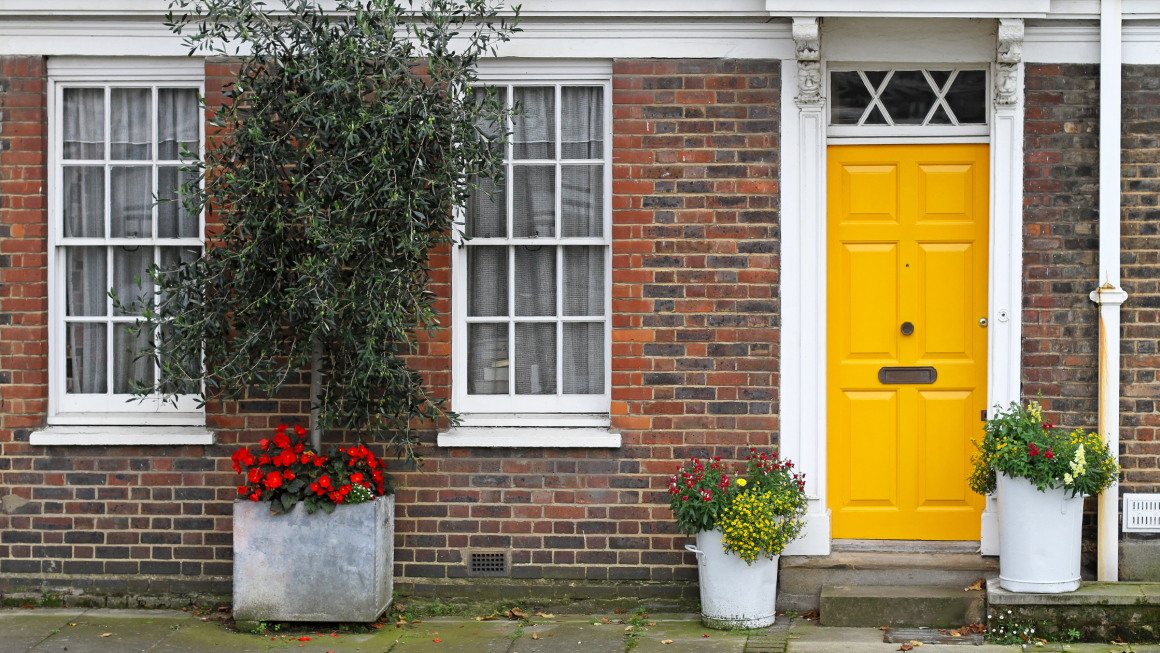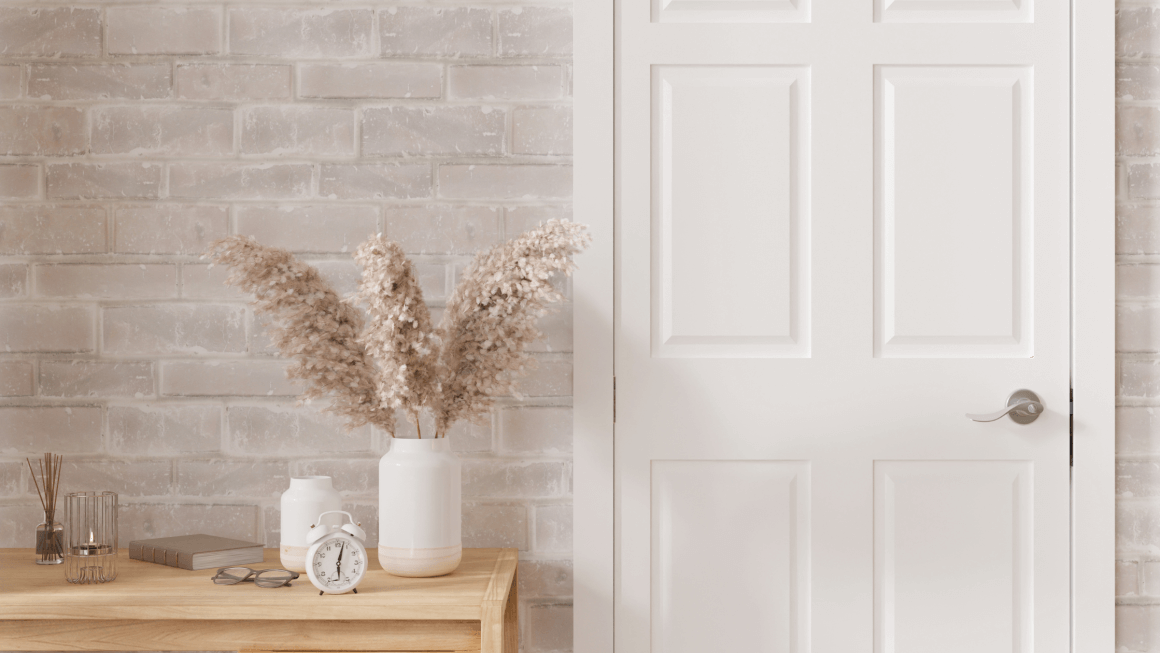There are several types of wood treatment for doors, but which is best treatment for external oak doors? In this guide we’ll go through some of the most common exterior oak treatment choices and whether they’re right for you.

What is the best protection for oak doors?
Are oak doors in style? Always! Oak external doors are popular with home owners because they’re stylish and sturdy. However, if they’re not cared for properly they can suffer from serious damage.
Wind, rain, snow and exposure to dirt can all contribute to rot and damage. A door that is not well looked after can swell, become warped, and even split. If you want to make sure that your doors last for as long as possible, it’s important to see treating exterior oak as an ongoing task.
Before fitting, you’ll need to administer an oak treatment, and then clean and re-treat them every two or three years. You’ll also need to check the labels of any paints, oils or varnishes carefully to make sure that they’re designed for outdoor use.
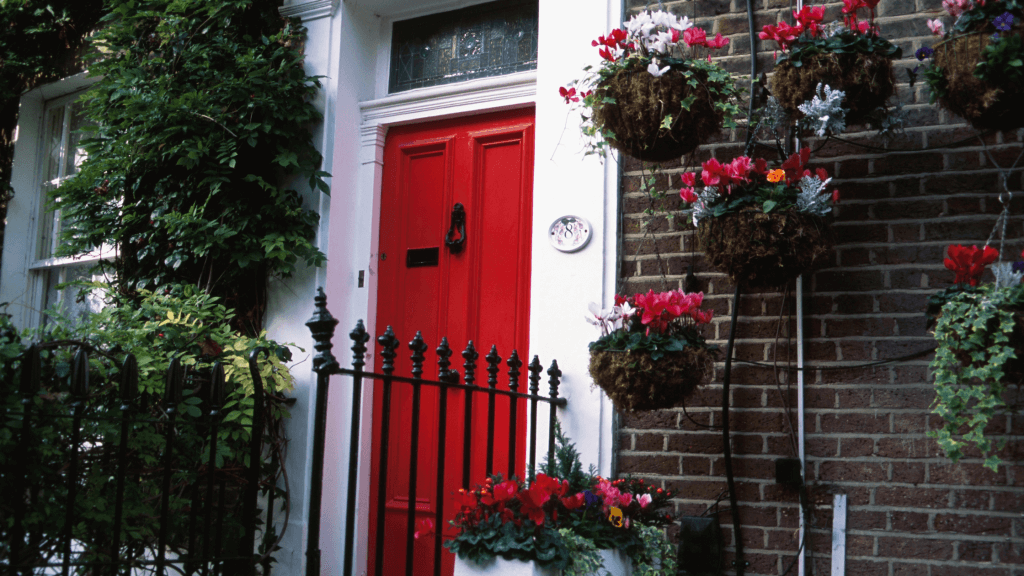
Can I finish oak doors myself?
Is it easy to finish oak doors? This depends.
Applying oil is generally considered easier than varnish. Oil often comes pre-tinted and requires less meticulous application for a good look. You can wipe away excess with a rag. Painting requires more careful preparation (sanding, priming) and a steadier hand for a smooth, even application. Touch-ups might also show more easily with paint.
If you’re a DIY novice, oil might be a more forgiving option. Brush strokes are less noticeable, and minor imperfections are less glaring. But if you’re comfortable with painting techniques and have the necessary tools (brushes, rollers, drop cloths), then paint shouldn’t be overly challenging.
Overall, a new, smooth door requires less prep work compared to a door with imperfections or existing paint that needs removal. But that isn’t to say you can’t restore oak entrance doors that are already on your property…
Watch how to refinish oak doors
It it ok to paint oak doors?
Before you treat your door, read any documentation that came with it. Most door manufacturers offer a warranty for their products, and included in that warranty will be a list of acceptable paints and finishes. If you use a product that does not offer adequate protection from the elements, then your warranty will be void. If in doubt, contact the company that made your door and ask them for recommendations.
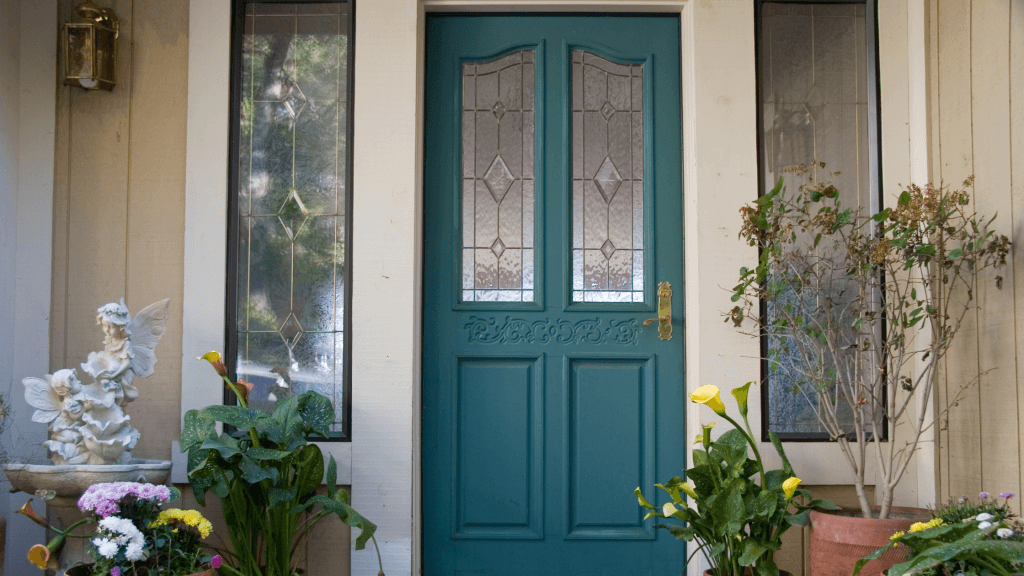
What is the best treatment for external oak doors?
Water-Based Treatments
Water based paints and varnishes will seal and waterproof your wood, but it does so by soaking into the wood, causing the wood grain to raise. Water based treatments usually require only one or two coats, so they can be applied quickly, but they need re-applied more frequently than oil based treatments, and can produce an uneven finish if they aren’t applied properly.
Exterior Wood Door Oil Treatments
Oil-based treatments are longer-lasting than water-based treatments and tend to produce a nice even finish. In addition, the pigments in oil-based treatments tend to be stronger and offer better protection against the sun’s UV rays. The main downside of oil-based treatments is that traditional oil-based stains may need more coats than a water-based treatment. Modern oil-based gels penetrate the wood well, which generally makes them the best oil for external oak doors.
Exterior Wood Door Wax
Wax produces a nice finish on internal doors, but rarely offers enough protection for external doors. Achieving a good finish with wax is a laborious process, and usually requires several applications, followed by a careful buffing process. If you do decide to use wax on an external door, it is best applied when it is warm so that the wood grain is open and the wax can seep in properly. Be prepared to have to re-apply the wax far more frequently than you would re-do an oil based treatment.
Exterior Wood Door Varnish
Is it best to oil or varnish oak doors? Well actually, varnish is not a good choice for oak external doors. The oak will react with the varnish when it is exposed to sunlight, and the varnish will start to peel off quickly. The finish may look great when it is fresh, but you’ll need to re-apply it every year to keep it looking good. Oil based treatments achieve a similar look and will only need re-done once every two or three years.
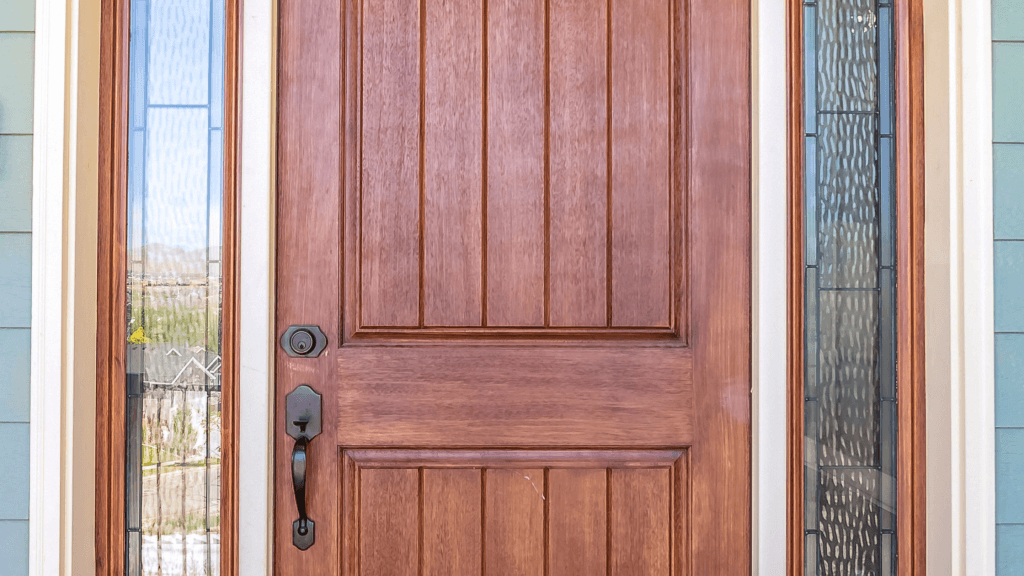
What is the best finish for an external oak door?
Oil enhances the natural grain and offers good weatherproofing. Reapplication is needed every 1-2 years, but it’s generally easier to touch up. If colour is your thing, paint offers a huge variety of bold and beautiful options. But while it provides excellent UV protection and moisture resistance, it does hide the natural wood grain. However, it requires less frequent maintenance (every 5-7 years) compared to oil.
| Feature | Oil | Paint |
| Appearance | Maintains natural ‘wood’ look | Solid colour which hides natural grain |
| Maintenance | More frequent (1 to 2 years) | Less frequent (5 to 7 years) |
| Protection | Good but less UV protection | Excellent protection against UV rays |
| Wear and tear | Easier to repair minor scratches | Not as easy to hide scratches |
| Ease of application | Very easy to apply | Preparation and careful application required |
Ultimately, the best choice depends on your aesthetic and personal preferences.
For a natural, neutral look and easier maintenance (as long as you’re comfortable with reapplication), choose oil. For low maintenance, a solid (or bolder) colour and UV protection choose paint if you don’t mind sacrificing texture and character.
If you’re still unsure, consult a professional at a homeware store. They can recommend the best finish based on your specific door, climate, and design vision.
How to restore oak doors?
What’s the best way to maintain oak external doors?
Proper Installation
Ensure the door is well-fitted within the frame to prevent warping from weather elements. Install weather stripping around the door to create a tight seal and prevent drafts, moisture intrusion, and heat loss. Consider adding an overhang or porch roof to shield the door from direct sunlight and rain. This minimises UV damage and moisture exposure.
Regular Care and Cleaning
Clean the door regularly with a damp cloth to remove dirt, grime, and cobwebs. This prevents moisture build-up and potential mould growth. Inspect the door for any signs of damage like cracks, loose hinges, or peeling paint. Address these issues promptly to prevent further deterioration. Maintain your chosen finish by following the manufacturer’s recommendations for reapplication. This ensures continued protection against the elements.
Make it Part of your Home Care Routine
Avoid using harsh chemicals or abrasive cleaners on the door, as they can damage the finish. Keep door hardware (hinges, locks) well-lubricated for smooth operation and to prevent rust. Don’t forget to consider climatic factors; in harsh winters, ensure proper drainage around the door to prevent ice accumulation, which can cause warping.
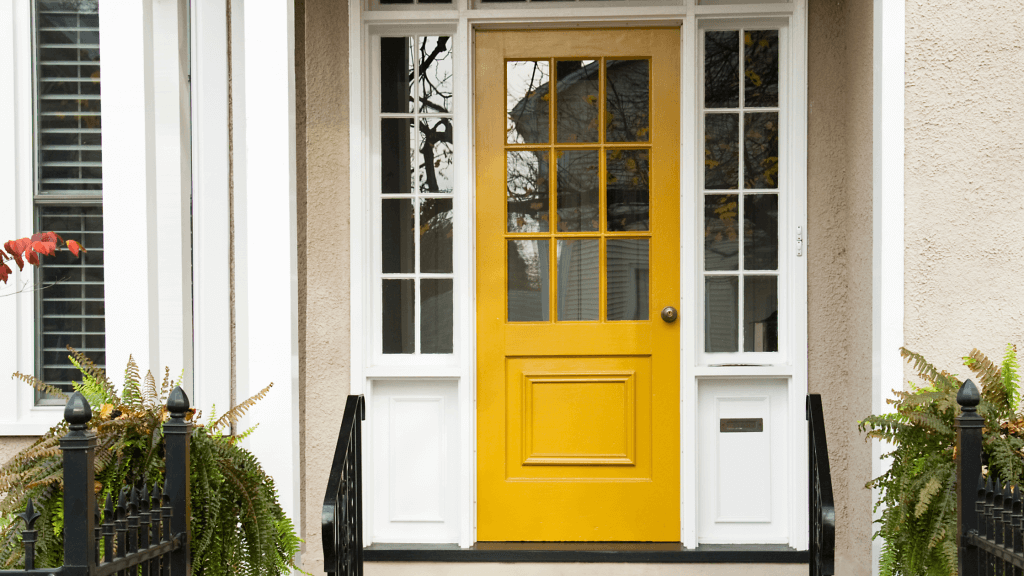
Buy Oak Entrance Doors Online
Discover our selection of external oak doors and order today for fast nationwide delivery. Need advice on the best value oak doors for you? Contact us now to talk to our friendly and experienced team. And delve into more tips on how to treat external oak doors with an article from the same series.



